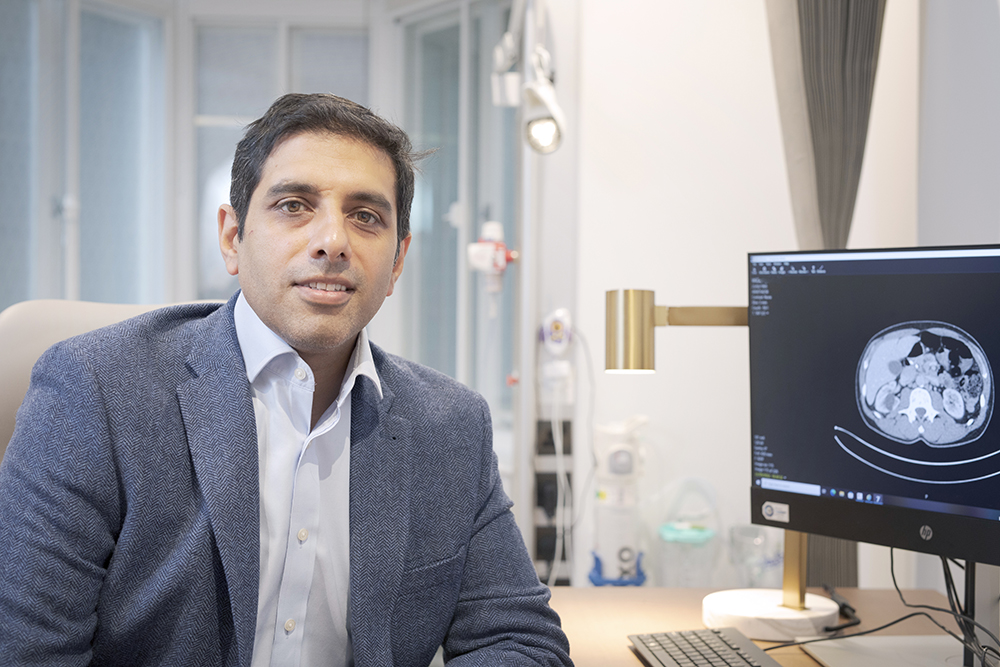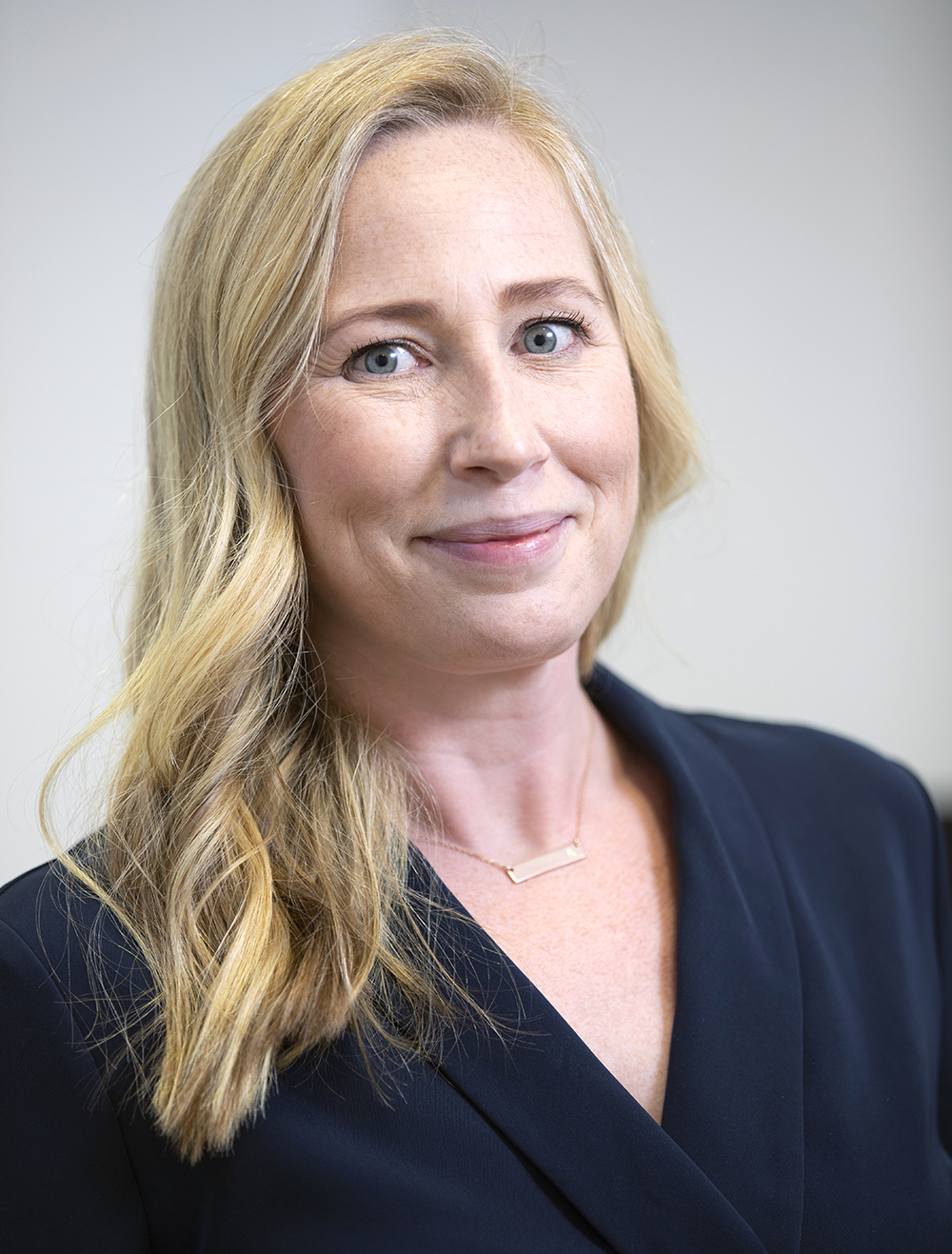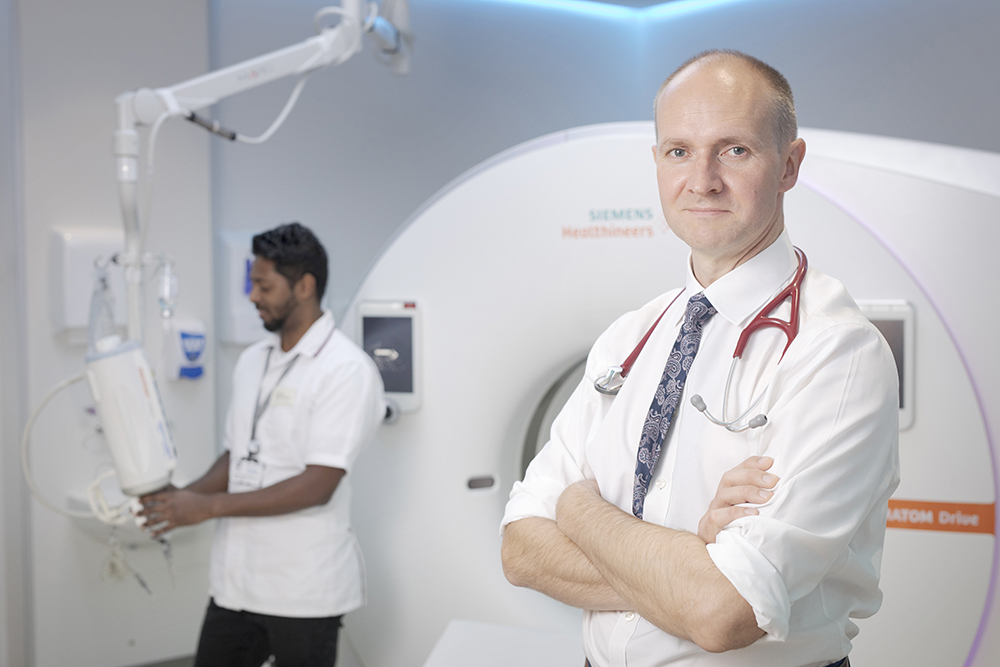The future of cancer services
FEATURE - 27TH JANUARY 2023
Ahead of World Cancer Day 2023, three consultants from The Royal Marsden Private Care at Cavendish Square discuss the latest research and innovations within their specialisms

Mr Ricky Bhogal
INCREASING THE PROPORTION OF OPERABLE PANCREATIC CANCER PATIENTS
Mr Ricky Bhogal, consultant hepatobiliary surgeon, specialist in robotic surgery
Pancreatic cancer has very high mortality rates and, to treat patients curatively, surgery currently offers the most realistic chance for survival. Unfortunately, only about 20% of patients initially present as eligible for surgery so, to improve outcomes, discovering ways to operate on more patients is vital.
For example, we have found that using therapies to shrink the tumour prior to surgery, such as chemotherapy and radiotherapy, can convert 30% of inoperable patients to operable. While other units across the UK have started to do this, The Royal Marsden has over a decade of experience treating pancreatic cancer patients in this way.
We also have access to state-of-the-art robotic technology, which is funded by The Royal Marsden Cancer Charity. Pancreatic cancer patients are often treated surgically using a Whipple procedure, where tumours are removed from the head of the pancreas. Robotic surgery offers increased precision, flexibility and control which means this procedure can be carried out on more complex cases, making it an accessible option for more patients.
In the future, I hope new technologies will speed up the diagnosis of the disease, potentially allowing us to operate on much greater numbers.

Dr Alison Ranger
TARGETING TUMOURS WITH COMPLEX RADIOTHERAPY TECHNIQUES
Dr Alison Ranger, consultant clinical oncologist, specialist in treating breast cancer patients with radiotherapy
As one of the world’s leading specialist cancer centres, The Royal Marsden regularly takes on challenging and complicated cases, which we are fortunate enough to have the technology and world-class expertise to treat. With a strong multidisciplinary team to draw from, we can offer patients the very best treatment options.
We have pioneered the use of stereotactic ablative body radiotherapy (SABR), an advanced type of radiotherapy, across multiple cancer types, including breast. The treatment targets tumours with an intense dose of radiation, while limiting damage to the surrounding tissue, which can mean fewer side effects for patients. However, as it can also target breast cancer which has spread to a limited area, it has the potential to one day revolutionise cancer care, transforming some patient’s treatment from palliative to curative.
My special interest is researching complex radiotherapy techniques to maximise radiation dose delivered to the breast and lymph nodes while reducing the dose to the heart and lungs. By targeting the cancer and reducing the impact on healthy tissue, these techniques enable more women to live well beyond cancer.

Dr Richard Lee
USING AI TO HELP DIAGNOSE LUNG CANCER EARLIER
Dr Richard Lee, consultant physician in respiratory medicine, champion for early cancer diagnosis
AI is an exciting new frontier in cancer research and The Royal Marsden is at the forefront in utilising this technology to diagnose, detect and prevent cancer more effectively. This includes multiple studies focusing on lung cancer, which is the UK’s biggest cancer killer.
For example, in the LIBRA study, we’re exploring whether AI can help diagnose lung cancer earlier using the CT scans of patients with large lung nodules (small clumps of cells found in the lungs). While common and mainly benign, some lung nodules can be cancerous, and nodules larger than 15mm have the highest risk. We’re hoping the technology will be able to accurately identify which nodules are cancerous and, as a result, eventually aid clinicians in deciding which patients are high-risk and need further investigation.
We’re also utilising this technology as part of the OCTAPUS-AI study, which is led by researchers from the hospital in collaboration with The Institute of Cancer Research, London, and Imperial College London. Using imaging and clinical data, we’re developing and testing AI models to see how accurately they can identify recurrence in non-small cell lung cancer (NSCLC) patients. While at an early stage, the research aims to use this technology to improve post-treatment follow-up for this patient group based on their risk. This may mean recurrence in high-risk patients is identified earlier, leading to faster interventions and improved outcomes, while low-risk patients could be spared unnecessary follow-up scans and hospital visits. Eventually, the model could be adapted to help predict recurrence for other tumour types too.
-
NEWS
HSMA cognitive health clinic teams up with data analytics experts
Re:Cognition Health is collaborating with MYndspan, a scanning and analytics company, to offer patients data-led insights into brain health
-
FEATURE
Historic breakthrough announced by Alzheimer’s researchers
Dr Emer MacSweeney of Re:Cognition Health on a major development in the fight against Alzheimer’s and the role played by her clinic in the search for new medications
-
FEATURE
London: A Global Hub for Life Sciences
A summary of the 2022 Healthcare Conference, which discussed the opportunities that exist for London to establish itself as a central player in global life sciences
-
FEATURE
The power of art in a healthcare environment
Kate Farrow, director of operations at King Edward VII’s Hospital, on how the addition of artworks to a hospital environment can have a positive impact on patient wellbeing